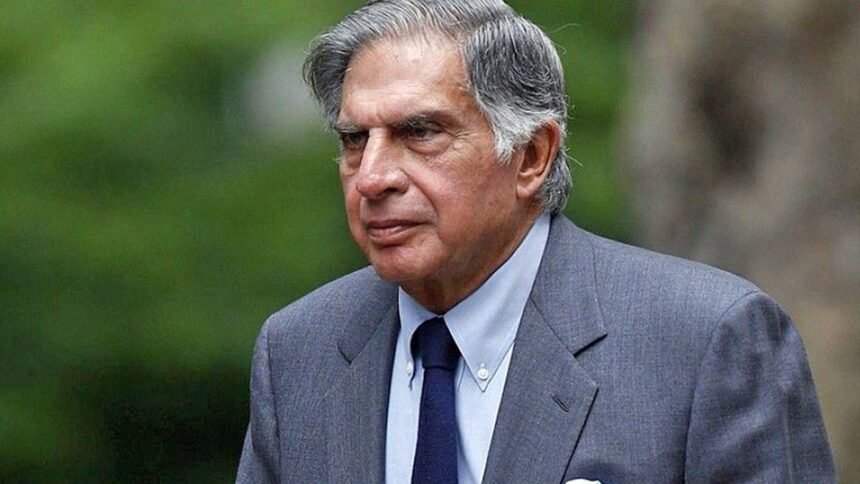Ratan Tata, one of India’s most esteemed business leaders, was born on December 28, 1937, in Bombay (now Mumbai), India, into the renowned Tata family. As the grandson of Jamshedji Tata, the founder of the Tata Group, Ratan Tata’s life is marked by resilience, visionary leadership, and an unwavering commitment to India’s development.
Early Life and Education
Ratan Tata’s early life was shaped by both privilege and personal challenges. Born to Naval Tata and Sooni Tata, his parents separated when he was just 10 years old. He and his younger brother Jimmy were raised by their grandmother, Lady Navajbai Tata. Despite his family’s wealth and status, Ratan Tata’s upbringing was rooted in values of discipline and humility.
He attended prestigious schools, including Campion School in Mumbai, Bishop Cotton School in Shimla, and later, the Cathedral and John Connon School in Mumbai. In 1955, Ratan Tata moved to the United States to pursue higher education. He graduated with a degree in architecture from Cornell University in 1959. Following his passion for learning, he completed the Advanced Management Program at Harvard Business School in 1975, an experience that deeply influenced his management philosophy.
Early Career: Humble Beginnings
Ratan Tata’s journey in the Tata Group began in 1961 at Tata Steel, where he worked on the shop floor, shoveling limestone and handling blast furnaces. This experience grounded him in the operations of industrial manufacturing and gave him valuable insights into the business at its core. It also highlighted his willingness to work from the bottom up, gaining respect not from his family name but from his work ethic and dedication. Over the next two decades, Ratan Tata held various roles within Tata Group companies, developing a reputation for his strategic thinking and leadership skills. His appointment as chairman of Tata Industries in 1981 marked a pivotal moment in his career. It also set the stage for his eventual leadership of the entire Tata Group.
Rise to Leadership: Transforming the Tata Group
In 1991, Ratan Tata succeeded his uncle, J.R.D. Tata, as chairman of Tata Sons, the holding company of the Tata Group. His appointment was met with skepticism, with many questioning whether he could live up to the high expectations set by his predecessors. However, Ratan Tata soon demonstrated his visionary leadership and ability to drive innovation and growth.
Under his leadership, the Tata Group underwent significant transformation. Ratan Tata modernized the conglomerate by consolidating its businesses and focusing on key sectors, such as steel, automobiles, information technology, and communications. His strategic vision included expanding the group’s presence globally, which led to several landmark acquisitions, including Tetley (tea), Daewoo (commercial vehicles), Corus (steel), and Jaguar Land Rover (automobiles). These moves not only made Tata Group a global powerhouse but also put Indian industry on the world map.
Key Achievements
- Humanitarian Leadership: Ratan Tata’s leadership transcended business, as he was often at the forefront during times of national crisis. Whether it was the 2001 Gujarat earthquake, the 2004 Indian Ocean tsunami, or other disasters, Ratan Tata demonstrated empathy and quick action by providing aid, strengthening his reputation as a compassionate humanitarian.
- Tata Nano: One of Ratan Tata’s most ambitious projects was the Tata Nano, launched in 2008. The world’s cheapest car, aimed at making automobiles affordable for the average Indian family, was a symbol of Tata’s commitment to innovation and inclusivity. While the Nano did not achieve commercial success, it remains an important milestone in the history of Indian manufacturing.
- Global Expansion: Under Ratan Tata’s leadership, the Tata Group expanded into over 100 countries and increased its revenue more than 40 times. His acquisition of iconic global brands, such as Jaguar Land Rover and Tetley, signaled the group’s transformation into a major global player.
- Philanthropy: Ratan Tata’s philanthropic efforts have been as influential as his business achievements. A large portion of the Tata Group’s profits is channeled into social causes through trusts like the Sir Dorabji Tata Trust and the Sir Ratan Tata Trust. These contributions have supported numerous initiatives in education, healthcare, and rural development. Ratan Tata also played a pivotal role in founding institutions such as the Tata Institute of Fundamental Research and Tata Memorial Hospital, ensuring his legacy extended far beyond the boardroom.
Retirement and Continued Influence
In December 2012, at the age of 75, Ratan Tata retired as chairman of Tata Sons, passing the leadership to Cyrus Mistry. However, in 2016, after a dramatic boardroom conflict, Mistry was removed, and Ratan Tata returned as interim chairman until the appointment of Natarajan Chandrasekaran. Despite retiring, Ratan Tata’s influence in Indian business remains strong. Post-retirement, he has been an active angel investor, supporting several Indian startups such as Ola, Paytm, and Snapdeal. His mentorship has been instrumental in nurturing India’s startup ecosystem, further cementing his role as a key figure in India’s entrepreneurial landscape.
Honors and Recognition
Ratan Tata’s achievements have earned him numerous awards and accolades. In 2000, he was awarded the Padma Bhushan, and in 2008, he received the Padma Vibhushan, India’s second highest civilian honor. Internationally, he has been recognized for his contributions to industry and society, receiving honorary degrees and accolades from prestigious institutions and foreign governments.
Personal Life
Despite his prominence, Ratan Tata has led a relatively private and humble life. Known for his love of cars, aviation, and animals—particularly dogs—he has always maintained a down-to-earth demeanor. Though he never married, Ratan Tata’s personal life has been marked by his strong values and dedication to philanthropy and nation-building.
Conclusion
Ratan Tata’s life and career exemplify the power of vision, integrity, and philanthropy. His transformative leadership of the Tata Group, combined with his commitment to social causes, has left an indelible mark on both Indian business and society. Even in retirement, his influence continues to inspire generations of entrepreneurs and business leaders. Ratan Tata’s legacy will not only be remembered for his business acumen but also for his humility, compassion, and enduring dedication to the betterment of India.






